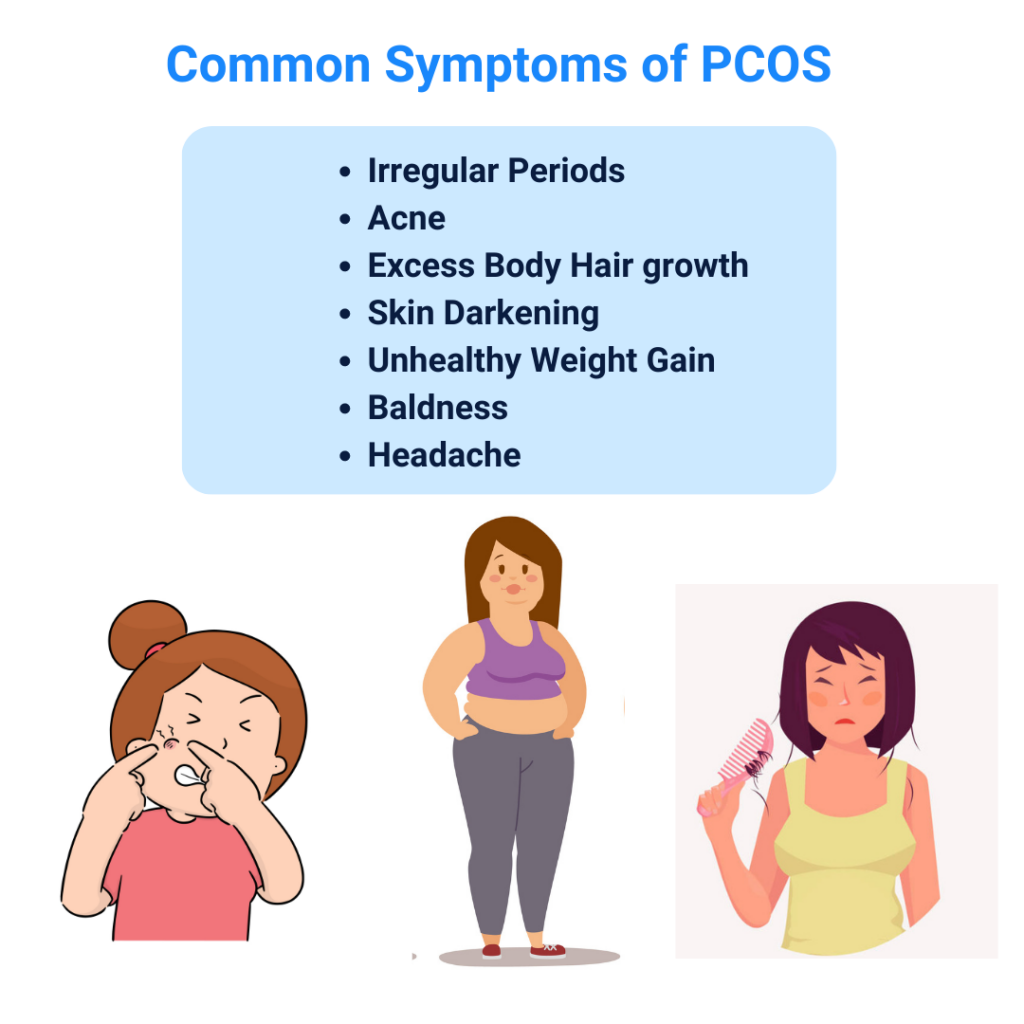5 Reasons You Might Be Struggling to Lose Weight
Shedding pounds can feel like an uphill battle. You diligently count calories and hit the gym regularly, yet are unable to lose weight. This can be incredibly frustrating and leave you questioning everything you’re doing.
The truth is that weight loss is a complex process influenced by a multitude of factors beyond just “calories in, calories out.”
Factors Contributing To Weight Gain
Here at LifeRx.md, we understand the challenges you face, and we’re dedicated to helping you achieve your weight loss goals in a healthy and sustainable way.
This article delves into five common reasons why you might be struggling to lose weight, even with dedicated efforts. By understanding these factors and making some adjustments, you can reignite your weight loss journey and finally see the results you deserve.
1. Underlying Medical Conditions:
Sometimes, an underlying medical condition can be sabotaging your weight loss efforts. These conditions can affect your metabolism, hormone levels, and overall health, making it difficult to shed pounds.
Here are some medical conditions that can impact weight loss:
- Polycystic ovary syndrome (PCOS): This hormonal disorder can lead to insulin resistance, making it harder for your body to use glucose for energy and promoting fat storage.
- Hypothyroidism: An underactive thyroid gland can slow down your metabolism, leading to weight gain and difficulty losing weight.
- Cushing’s syndrome: This condition occurs when the body produces too much cortisol, a stress hormone that can lead to weight gain, particularly in the torso and face.
- Sleep apnea: This sleep disorder can disrupt hormone regulation, specifically leptin (which promotes satiety) and ghrelin (which stimulates hunger), leading to increased appetite and potential weight gain.
What to do: If you suspect an underlying medical condition could be hindering your weight loss, consult your doctor. They can perform a thorough evaluation to rule out or diagnose any issues. Early diagnosis and treatment of these conditions can significantly improve your weight management efforts.

2. Unrealistic Expectations
Losing weight takes time and dedication. Setting unrealistic expectations can be demotivating and lead to frustration when the results don’t match your initial aspirations. Aiming to lose too much weight too quickly (often more than 1-2 pounds per week) is a common pitfall. Rapid weight loss can be unsustainable and even unhealthy, potentially leading to muscle loss, nutrient deficiencies, and an increased risk of regaining weight later.
A more realistic approach is to focus on gradual, sustainable weight loss. This might involve setting smaller, achievable goals along the way. For example, instead of aiming to lose 10 pounds in a month, you could set a goal of losing 1-2 pounds per week. This slower pace allows your body to adjust to the changes you’re making and helps you develop healthy habits that you can maintain for the long term.
It’s also important to remember that weight loss isn’t just about the number on the scale. Celebrate non-scale victories as well. These can include increased energy levels, improved sleep, better-fitting clothes, and increased strength and endurance. Recognizing these positive changes can help you stay motivated and on track with your weight loss journey.
The Healthy Approach: Aim for a gradual weight loss of 1-2 pounds per week. This is a sustainable and realistic goal that promotes long-term weight management success. It’s also important to celebrate non-scale victories, such as increased energy levels, improved sleep, and better-fitting clothes.
3. Hormonal Imbalances
Hormones play a crucial role in weight regulation. Fluctuations in certain hormones can impact your metabolism, appetite, and body composition. Here are some hormones that can influence weight loss:
- Insulin: This hormone helps your cells absorb glucose from the bloodstream for energy. Elevated insulin levels may encourage fat storage.
- Leptin: This hormone signals satiety (feeling full) to the brain. Low leptin levels can lead to increased hunger and overeating.
- Ghrelin: This hormone stimulates hunger and appetite. High ghrelin levels can make it challenging to feel full and control calorie intake.
Addressing Hormonal Imbalances: Discuss any concerns about hormonal imbalances with your doctor. They can assess your hormone levels and recommend appropriate treatment options, such as dietary modifications or medications, to support your weight loss journey.
4. Stress and Emotional Eating
Persistent stress can seriously undermine your attempts to lose weight. When stressed, your body releases cortisol, a hormone that promotes fat storage, particularly around the belly. Additionally, stress can trigger emotional eating, leading you to over consume unhealthy foods as a coping mechanism.
Strategies for Managing Stress:
- Mindfulness and meditation: These practices can help manage stress by promoting relaxation and emotional regulation.
- Exercise: Frequent exercise is a healthy way to reduce stress. Try to get in at least 30 minutes a day, most days of the week, of moderate-intense exercise.
- Therapy: Cognitive behavioral therapy (CBT) can equip you with strategies to manage stress and develop healthy coping mechanisms.
5. Inadequate Sleep:
Sleep deprivation can negatively impact weight management in several ways. When sleep-deprived, your body produces more ghrelin (the hunger hormone) and less leptin (the satiety hormone), leading to increased hunger and overeating. Additionally, insufficient sleep disrupts your metabolism and can hinder your body’s ability to burn calories effectively.
Prioritizing Sleep for Weight Loss: Aim for 7-8 hours of quality sleep each night. Establish a regular sleep schedule, create a relaxing bedtime routine, and ensure your sleep environment is dark, quiet, and cool.
LifeRx.md: Your Partner in Weight Loss
At LifeRx.md, we understand that weight loss is a unique journey. There is no one-size-fits-all method, and what suits one individual may not suit another. That’s why we offer a personalized approach to weight management, focusing on addressing the underlying factors that may be hindering your progress.
Here’s how LifeRx.md can be your partner in achieving your weight loss goals:
Comprehensive Evaluation
We start with a thorough evaluation to understand your individual needs and challenges. This may include a review of your medical history, dietary habits, physical activity levels, and lifestyle factors. We may also recommend lab tests to assess for any underlying medical conditions that could be impacting your weight.
Personalized Weight Loss Plan
Based on your individual needs and preferences, we will develop a personalized weight loss plan. This plan will encompass realistic calorie goals, tailored dietary recommendations, and an exercise program that fits your fitness level and interests.
Medication, when appropriate
We may incorporate prescription medication tailored to your needs to support your weight loss efforts. Our doctors will carefully assess your health profile and determine if medication can provide a safe and effective boost to your weight loss journey. Some medications can help regulate appetite, increase metabolism, or block fat absorption. However, medication is not a magic bullet and should be used in conjunction with other weight loss strategies like diet and exercise.
Nutritional Guidance
Our team of registered dietitians will provide you with evidence-based nutritional guidance to help you make healthy, sustainable dietary changes. We’ll work with you to create a meal plan that’s not only nutritious but also delicious and satisfying.
Support and Motivation
Although we understand that losing weight might be difficult, we are here to help you every step of the journey. You’ll have access to our team of healthcare professionals for ongoing guidance, motivation, and support. We also offer educational resources and tools to help you stay informed and empowered on your weight loss journey.
Ready to get started?
Contact LifeRx.md today to schedule a consultation and discuss how we can help you reach your weight loss goals in a healthy and sustainable way.
LifeRx.md is your trusted partner on the road to a healthier you. Let us help you achieve your weight loss goals and experience the positive impact it can have on your overall well-being.
Recall that losing weight is a process rather than a goal. By understanding the factors that might be hindering your progress and partnering with a team that supports your individual needs, you can achieve lasting success. LifeRx.md is here to guide and empower you every step of the way.



















